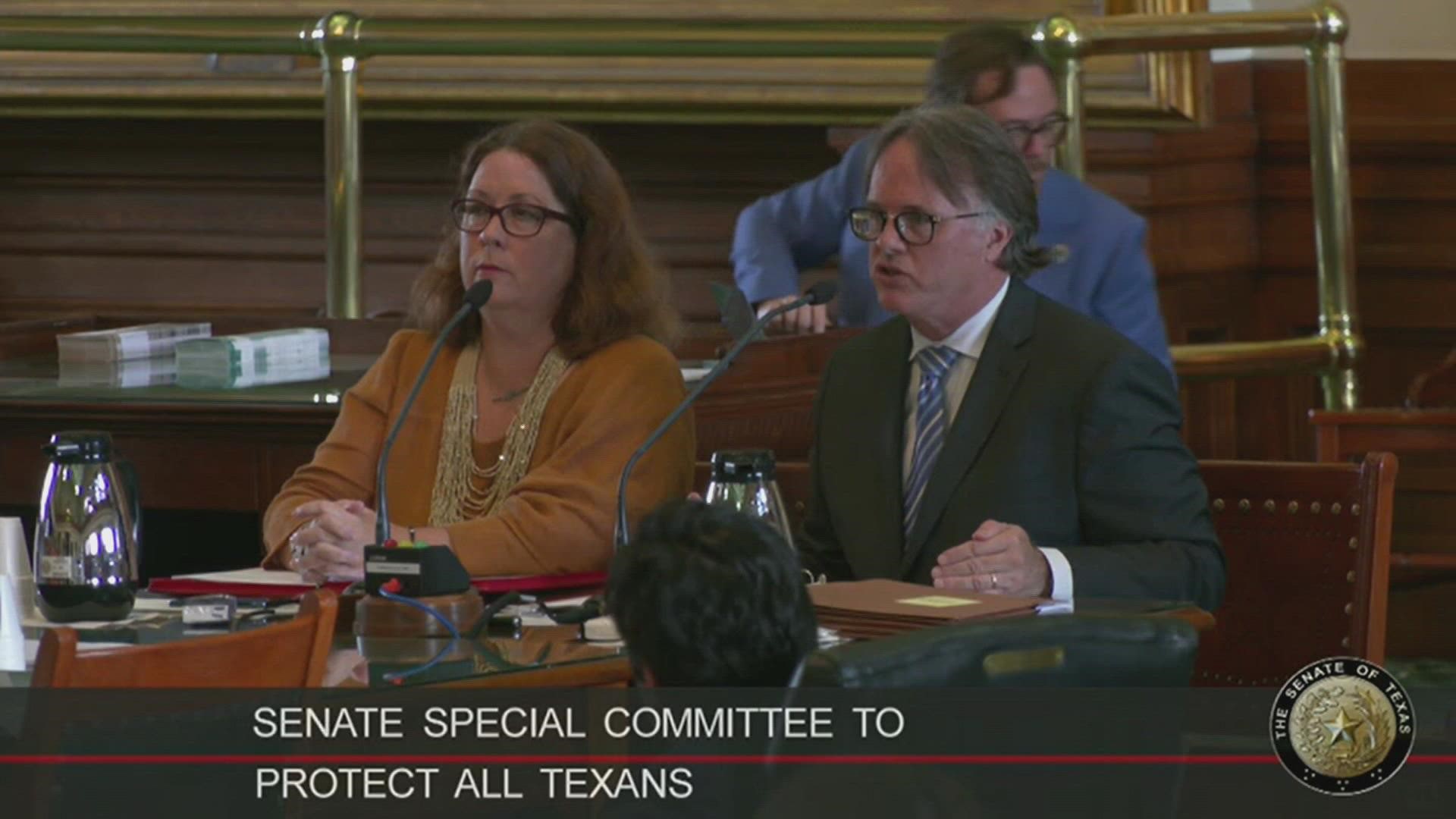UVALDE, Texas — After 21 hours of testimony spanning two days, the Texas Senate special committee formed after the Uvalde attack wrapped up around 5 p.m. Wednesday.
How the committee spent its time seemed to align with members' priorities for changes.
The first six hours were spent listening to DPS Director Steven McCraw outline what happened on May 24 when the Uvalde shooter killed 19 students and two teachers.
For the next six hours, the 11-member committee heard from witnesses including TEA Commissioner Mike Morath on school safety. Wednesday’s hearing began with six more hours of testimony focused on mental health.
Finally, the committee wrapped up with two hours on gun control and another final hour for public comments.
Tuesday, Morath revealed law enforcement had the personnel and tools needed to stop the Uvalde gunman after three minutes, but they waited for one hour, 14 minutes and 8 seconds before they finally breached the classroom and killed him. The school district police chief had said he was waiting for a key to enter the room, but McCraw said the door was never locked.
Wednesday's hearing wasn’t focused on what happened in Uvalde but instead on how to prevent it.
Seven witnesses opened the day speaking about mental health, focusing on how understaffed mental health facilities and services are in Texas.
About 1,600 people in Uvalde have received mental health treatment since the attack, about 10% of the city’s population, according to Sonja Gaines, the deputy executive commissioner for intellectual and developmental disability and behavioral health services at Texas Health and Human Services.
Gaines said there is a 50% vacancy rate for case workers, which has in effect doubled caseload.
“As you can imagine, you get diminished returns in terms of the effectiveness and also the burnout,” she said. “I would say the workforce has been a challenge.”
David Lakey, UT System’s vice chancellor for health affairs, led off the hearing Wednesday stress that fact, too.
“If we don’t have the workforce there to provide the counseling services to our kids in the schools, we’re not going to be able to identify issues early, provide them the counseling they need, the services they need to get them on the path they need,” he said.
The very last topic covered by the committee after two full days has been the most discussed since the attack: gun safety.
Nicole Golden, the executive director of Texas Gun Sense and Aurora Vasquez, the Sandy Hook Promise Vice President, spoke to the committee.
Both offered suggestions for gun law changes including raising the age of those who can purchase a gun to 21 and for extreme risk laws that allow courts to take weapons away from owners considered to be an imminent threat.
“The answer comes in the form of prevention, not reaction,” Golden said. “Background checks on private transfers may have prevented Midland-Odessa. Extreme risk protection orders may have averted El Paso. Child access prevention laws may have prevented Santa Fe.”
Vasquez also focused on closing a loophole allowing for person-to-person gun sales which let people who would not be able to buy a gun from a licensed dealer still purchase one from a friend, neighbor or other non-dealer.
“To advance other solutions that have been spoken about these past two days and not to include these would be a grave error,” Golden said. “There’s data behind there. They’re proven.”
Much of the public testimony from 14 speakers Wednesday focused on instituting better mental health policies and strong gun laws.
Many lawmakers have pushed for the governor to call a special session to allow the state to pass new law in response to Uvalde.
Tuesday, Texas big city mayors including in Dallas, Arlington and Fort Worth joined that call asking for universal background checks, increasing the age to purchase weapons to 21, passing red flag laws, increasing mental health funding and adding school safety officers.
The senate committee opened Tuesday with its chair, Sen. Robert Nichols, acknowledging this was the third time the state had created a special committee following a mass shooting. Now Texans will see what the state does to prevent a fourth.

